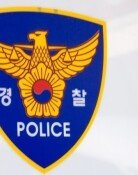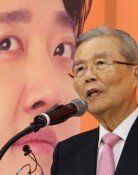Checklist for discussions to unify conservative, moderate candidates
Checklist for discussions to unify conservative, moderate candidates
Posted April. 26, 2017 07:17,
Updated April. 26, 2017 07:20
After the end of a general meeting of the Bareun Party that continued through early Tuesday morning, its floor leader Joo Ho-young said, “We have decided that while the party will do its best to seek candidate Yoo Seung-min’s election, it will also pursue all different measures including the unification of the three candidates namely Liberty Korea Party candidate Hong Joon-pyo and People’s Party standard-bearer Ahn Cheol-soo to block Minjoo Party candidate Moon Jae-in from taking power.” Candidate Hong decided to accept grand integration of conservative parties centered around the Liberty Korea Party and the Bareun Party, but chose to deny coalition with the People’s Party candidate. Ahn and Park Jie-won, the chair of the People’s Party’s Election Preparatory Committee, expressed their objection to the Bareun Party’s offer. It appears that unification between two candidates from the Liberty Korea Party and the Bareun Party, or from the People’s Party and the Bareun Party will not be easy, let alone unification of the three candidates.
The Minjoo Party strongly blasted the bid to unify candidates, saying, “The Bareun Party made ill-advised decision. Unification of three candidates is an anti-people, anti-democracy and anti-history coalition.” However, such criticism has been made given that candidate unification was done mostly by the liberal camp in the past. Effective unification of candidates Moon Jae-in and Ahn Cheol-soo in the 2012 election, the DJP coalition between Kim Dae-jung and Kim Jong-pil, and the unification between Roh Moo-hyun and Chung Mong-joon were spearheaded by Kim Dae-jung and Roh Moo-hyun. With the conservative camp in complete disarray following former President Park Geun-hye’s impeachment, it is natural that they call for unification between conservative and moderate candidates.
France will hold the final round of its presidential election on May 7. Through the final round vote, France reduces dead votes and assembles scattered votes. In Korea that is lacking the final round, pre-election coalition is inevitable to some extent. However, the unification centered around candidates of the Liberty Korea Party and the Bareun Party, as demanded by Hong, could rather generate many dead votes, while failing to win a meaningful approval rate in itself. Also, not many people will agree upon the cause for their unification either if the forces choose to unite right before the election. If unification is necessary, a big picture should be made to include People’s Party candidate Ahn.
Moon’s side claims that what was wrong for the (Roh Moo-hyun) administration to abstain the vote on U.N. resolution on North Korean human rights. If Moon gets elected, chances are high that his administration will reconsider the deployment of the Terminal High Altitude Area Defense missile system, which is essential for South Korea’s air-defense system to block North Korean missiles. Many voters feel security concern about Moon, but it is difficult for such voters to unite through votes. As long as such concern exists among many voters, the three parties namely the Liberty Korea Party, the People’s Party, and the Bareun Party are politically obliged to respond to the demand.
Presidential candidates should also consider state administration after one’s successful election, let alone the upcoming election. Even if a party with less than 40 seats in the National Assembly takes power, it can hardly achieve cooperative rule, but rather could be easily swayed by a giant party. Voters’ concern grows in such a situation, while reducing the number of votes to earn. In a situation wherein whoever gets elected must form a coalition government, practicing coalition through discussions about candidate unification will be beneficial to stabilizing of post-election politics as well.







